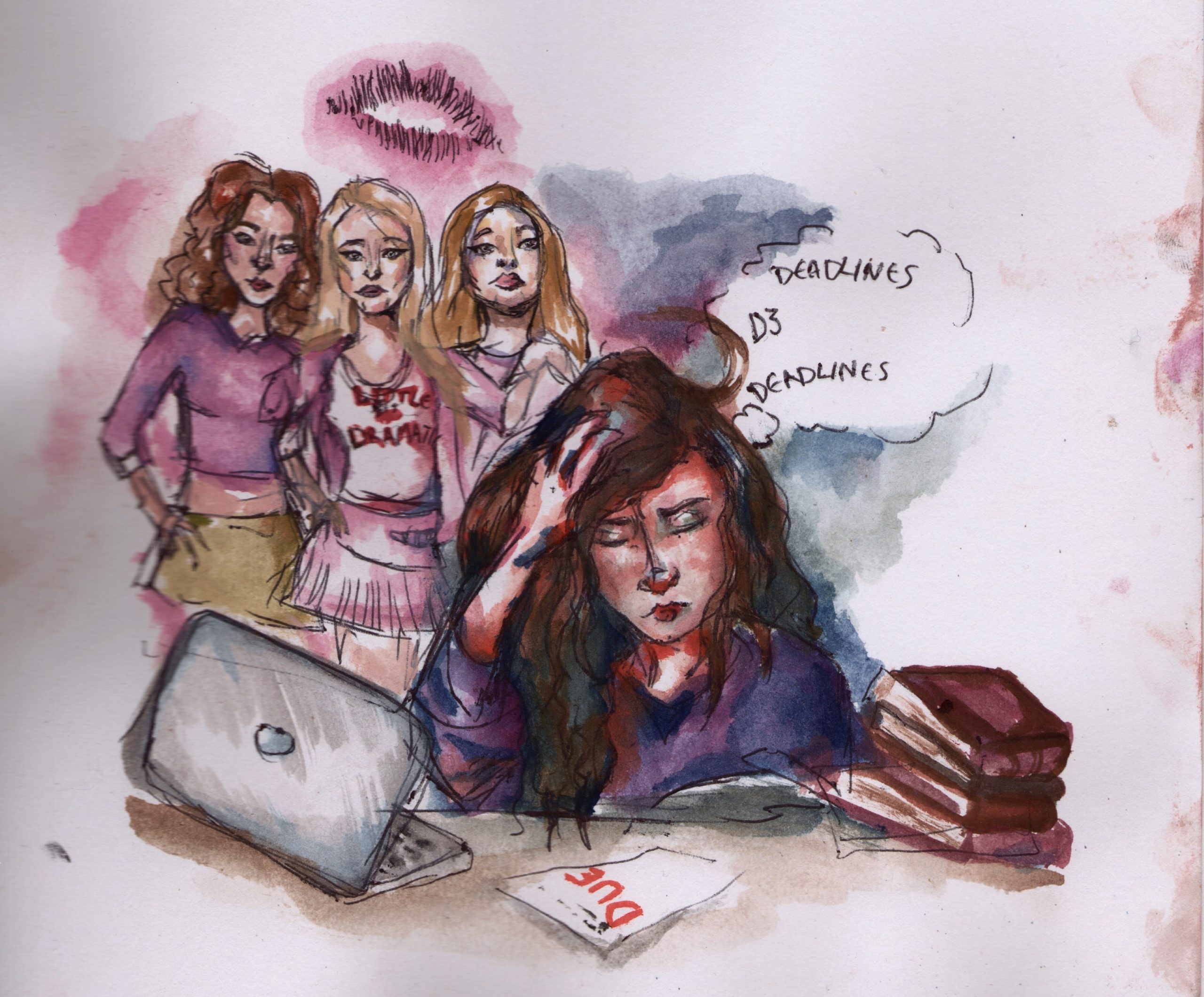[Written By: Elspeth Macintosh]
[Illustration: Skye Galloway]
Many TV shows portray the lives of adolescents. Teen dramas are churned out seemingly on a production line by television networks, but it’s only the best ones that are remembered. This is often because of the relatability of storylines and characters (or sometimes it’s just because of the addictive drama!) In my opinion, the most important feature of this genre is that there is usually a genuine focus on young people’s issues and experiences, and for this reason it has created some of the best content and characters out there. I’ve picked a few favourites to discuss. But because this is such an expansive category, it’s impossible to cover everything – so apologies if this selection isn’t for you!
1980s: I don’t give a damn about my reputation
Some of my favourite teen dramas are the ones with room for humour, like the hilarious show that is Freaks and Geeks. Set in a 1980s American high school, it focuses on sister and brother Lindsay and Sam (the freak and the geek, respectively) and their friends. The siblings may be different ages, but both of their storylines perfectly encompass the awkwardness of the high school drama. Sam is yet to hit puberty and his friends are massive dorks. His older sister is a “mathlete” rebelling by hanging out with the super-cool slacker “freaks”. One of the best things about these characters is that they all take themselves so seriously, but are all kind of ridiculous. And even though the lives of the freaks and the geeks are so separate, the show does a good job of implying how little this actually matters.
1990s: Dancing in the dark
Cult classic My So-Called Life is often praised for its characterisation of the lead, Angela Chase. This is achieved through the voice-over of her thoughts, from the shallowest ones to the deepest. Like Freaks and Geeks, it only lasted for one season, which left Claire Danes’ character and her storyline in limbo. There is something quite interesting about this, because, in some ways, it makes the show more realistic – there is not always a satisfying conclusion to everything in life. Not knowing how things end with Angela and her friends makes the excerpt of their fictional lives that we get to see fleeting. Like many coming-of-age shows, it can be very cheesy. But it is also honest. If you’re a fan, journalist Soraya Roberts does a fantastic job of exploring its significance with In My Humble Opinion, a short book which she dedicated to her love of the show.
2000s: xoxo / a wild world
Some television for young adult audiences is more escapism than anything else. Bringing us into the noughties, Gossip Girl is a pretty blatant example of this. In what seems like a separate world, the characters of Gossip Girl live a completely lavish fictional existence. This is the polar opposite of wholesome. Instead, these teens get driven around New York by chauffeurs and splash cash on fancy clothes and drinks. However annoying the teens from Gossip Girl are, they’re still sincere in some ways throughout all six seasons. But even with that in mind, most of it is superficial.
Things are grittier in E4’s hugely popular Skins, which first aired in 2007. It is more obvious in its depiction of drugs, sex and alcohol, which shows a dimension of real life for most teens that has a tendency to be censored from TV. It also deals with issues of mental illness, grief, sexuality and more in greater detail. Whilst it’s good to be funny, or emotionally aware, or to be a form of escapism, it is especially important to generate a conversation about these things, which is why I appreciate Skins for the way it presents them. Through the changing cast of the show, it is also able to be more representative.
To conclude, there are a variety of shows out there for young people that use a variety of ways of portraying real-life experiences. Using storytelling on the small screen to connect young people is definitely one of the great uses of TV (other than wasting time).

